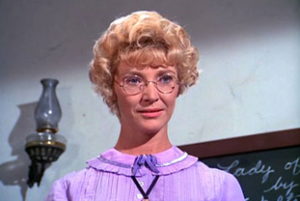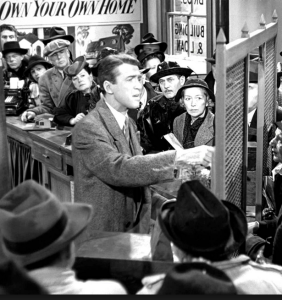Norman Ornstein and Thomas Mann, among many others, have made the case that our contemporary politics are “vehemently adversarial.” That’s not exactly breaking news, but their book “It’s Even Worse Than It Looks” does a particularly good job of documenting the phenomenon. Even more than at most points in history, our leaders are clinging to their partisan corners, and rhetorically portraying Americans in cartoonish hero versus villain terms.
A lot of attention is given to the corrosive effects of partisans’ villainizing. But in its way, the partisans’ hero worship is just as harmful. Polarizing partisans have effectively created groups of Untouchables, constituency groups that are so celebrated by one or both of the major political parties that leaders fail to responsibly oversee and regulate them.
Both major parties have their Untouchables. With Democrats, government workers, teachers, and union workers are among the Untouchable groups often described like infallible heroes. Meanwhile, Republicans place business people, military brass, and religious leaders on unreasonably high pedestals. Both parties compete to see who can slather the most flattery and government benefits on bipartisan Untouchables, such as soldiers, health care providers, and seniors.
Untouchable Teachers
 As a case study, consider how the left often treats teachers. Listening to Democrats talk about teachers, you would think that every last one of them is a cross between saintly Miss Beadle from the television series Little House on the Prairie series and life-changing John Keating from the film Dead Poet’s Society. Anyone who has spent time in the public school system understands that the reality is more complicated. Teacher quality ranges the full gamut from excellent to poor, as is the case with every profession on the planet.
As a case study, consider how the left often treats teachers. Listening to Democrats talk about teachers, you would think that every last one of them is a cross between saintly Miss Beadle from the television series Little House on the Prairie series and life-changing John Keating from the film Dead Poet’s Society. Anyone who has spent time in the public school system understands that the reality is more complicated. Teacher quality ranges the full gamut from excellent to poor, as is the case with every profession on the planet.
So what’s the harm with a little too much constituency group rah-rah? Can’t the world benefit from more positivity? The problem is, this over-the-top hero worship leads to bad policy, where everyone in the worshiped group is treated as if they are all equally noble and skilled.
They aren’t. While teaching is a very noble profession, poor teachers obviously exist. Being a poor teacher doesn’t equate with being a bad person – I’m not a bad guy, but I would be a horrible teacher – but bad teachers are harmful to children. Ineffective teachers, even well-meaning ones, can do a lot of damage to students when they are allowed free reign to teach ineffectively. The education reform group Students First explains:
Unfortunately, the reality is that many current policies treat all teachers as if they are interchangeable. These policies often cause highly effective teachers to be paid less than their least effective colleagues. And they fail to protect the best teachers—the ones who are most positively impacting student achievement—from layoffs. As a result, most districts have low retention rates and retain their best and worst teachers at similar rates.
Despite this, many Democrats universally treat even poor performing teachers like Untouchables. For instance, this year Minnesota again failed to enact a law that would allow teacher performance to be one of the factors considered in teacher retention decisions. During this debate, anyone who dared to say that teachers should be judged on performance – as happens in almost all other professions — were called names by liberals. “Anti-teacher!” “School-basher!” “Right wing extremist!” (By the way, about two-thirds of Minnesotans currently fall into this category.)
Untouchable Business People
 Republicans also have many Untouchables that they fail to regulate responsibly. Listening to the right talk about business people, or ”job creators” as their PR gurus coach them to say, you would think that all business people will automatically turn any type of tax break into great-paying jobs. You would think that every last one of them is some combination of the job-creating genius Henry Ford and the Main Street humanitarian George Bailey from It’s A Wonderful Life.
Republicans also have many Untouchables that they fail to regulate responsibly. Listening to the right talk about business people, or ”job creators” as their PR gurus coach them to say, you would think that all business people will automatically turn any type of tax break into great-paying jobs. You would think that every last one of them is some combination of the job-creating genius Henry Ford and the Main Street humanitarian George Bailey from It’s A Wonderful Life.
Obviously, the reality is that some businesspeople do use tax breaks to invest in ventures that create good jobs, while others will use their tax savings to amass personal wealth, expand their operations in other countries, make poor investment decisions, or invest in purchasing a plutocracy that will deliver still more tax loopholes to them.
Yet anyone who objects to giving more tax breaks to business people is labeled by Republicans as “anti-jobs,” “anti-business” or “socialist.”
The world is just not that black and white. No group of Americans is 100% virtuous, or 100% worthless, and public policies have to recognize that.
While it may be unpopular to say in the partisan cheering sections, the truth is that some health care providers are unethical, greedy and/or insufficiently skilled, and need to be regulated. Some government workers are incompetent, unqualfied, and/or lazy, and allowing them to continue offering sub-par job performance hurts taxpayers and vulnerable citizens they are supposed to be serving. Some seniors are wealthy enough that they don’t need to be lavished with government benefits at the expense of more vulnerable Americans. Some military leaders are too trigger happy or myopic, and therefore need to have their arguments carefully scrutinized or rejected.
When partisans blindly apotheosize political Untouchables, important oversight and regulation goes undone. Untouchable constituencies lead to unaccountable policies. A leader fighting for accountability among Untouchables shouldn’t be shouted down with simplistic name-calling. They are merely doing their job as responsible public managers, regulators and legislators.

When you’re right, you’re right, Joe. I can’t tell you how many conversations I’ve aborted once the guy or gal across from me wanders into “absolutist” land. Left or right, it’s an uninvolving rhetorical tic. A certain sign that the person is far more interested in asserting some sort of ideological purity than exploring the vast grey ground of nuance.
That said, it’s easy to understand why pro-union advocates respond in the rote way they do. (They’re a bit like Jews on the question of a Palestinian state). They see their cause as so seriously embattled there’s no room for discussing the flaws in its function.
On the question of teachers, arguably one of the strongest unions going, my wife (a retired teacher/37 years) knew plenty of “bad teachers”, but argues that the truly incompetent were a self-winnowing crowd. Their lack of ability to get across a basic lesson plan, which is to say failure to engage the classroom, invariably led to constant disciplinary issues which exhausted them to the point they fled to a different career, possibly customer service for Comcast.
Moreover, she insists that weeding out the “bad” is in the job description of well-paid school and district administrators, some of whom played the payback game with teachers (often a smart-ass crowd) they disliked personally. Administrators lived in a certain level of fear of union pushback … but that’s their job. “Deal with it”, she says.
I hear you. In almost all professions, managers sends lots of signals to ineffective employees, who then usually pick up on the signals and usually leave before the process progresses to the point of firing. But I have to believe that in all professions, including in teaching, some are not willing or able to pick up on the signals and leave on their own. I would think such digging in might happen more often when the employee knows they’re untouchable because of seniority protections. Any profession needs a way to deal with situations where an ineffective employee won’t leave.
To be clear, I’m not saying teachers are worse than other professionals. I’m just saying they’re more untouchable than a lot of professionals, and that does a disservice to kids and excellent teachers.